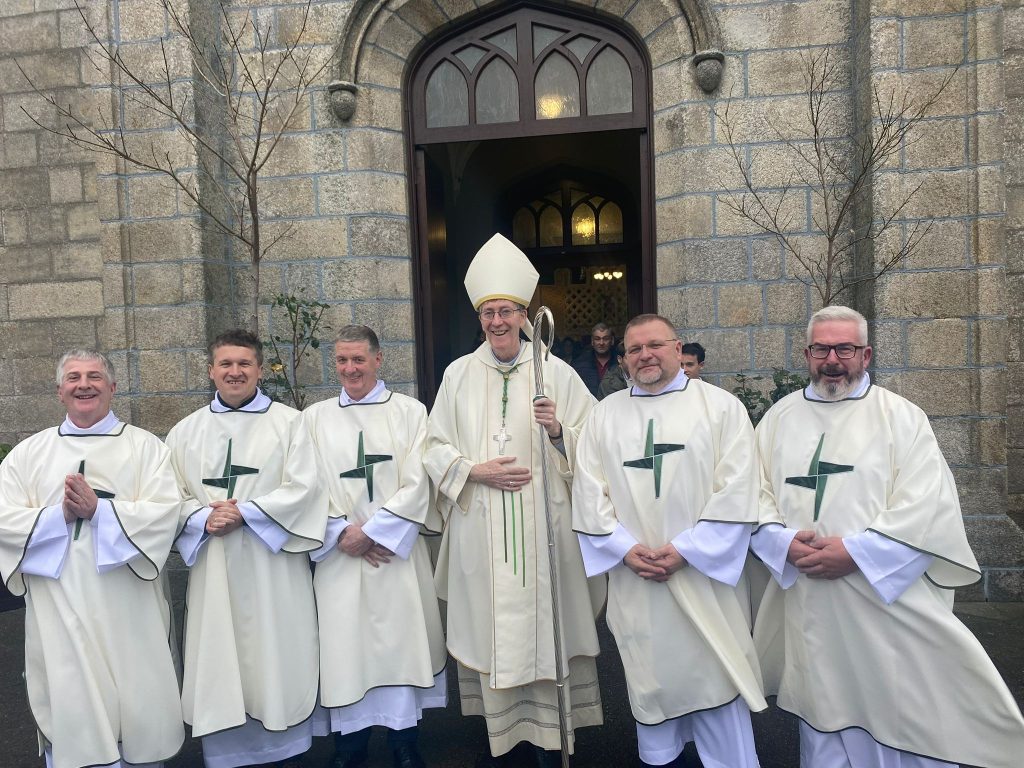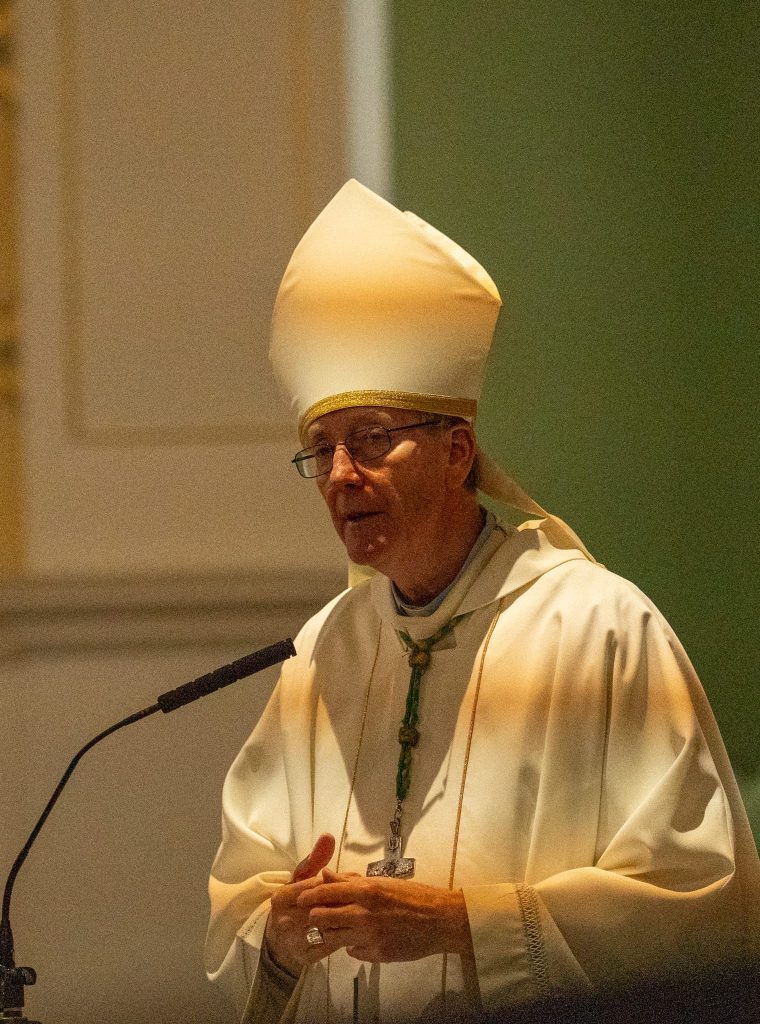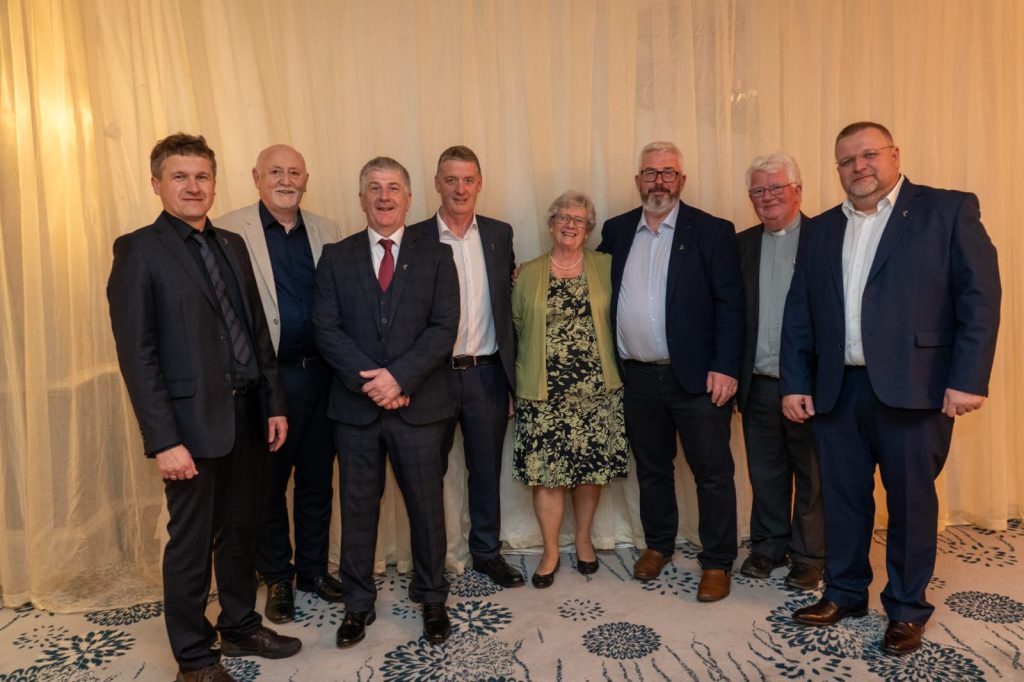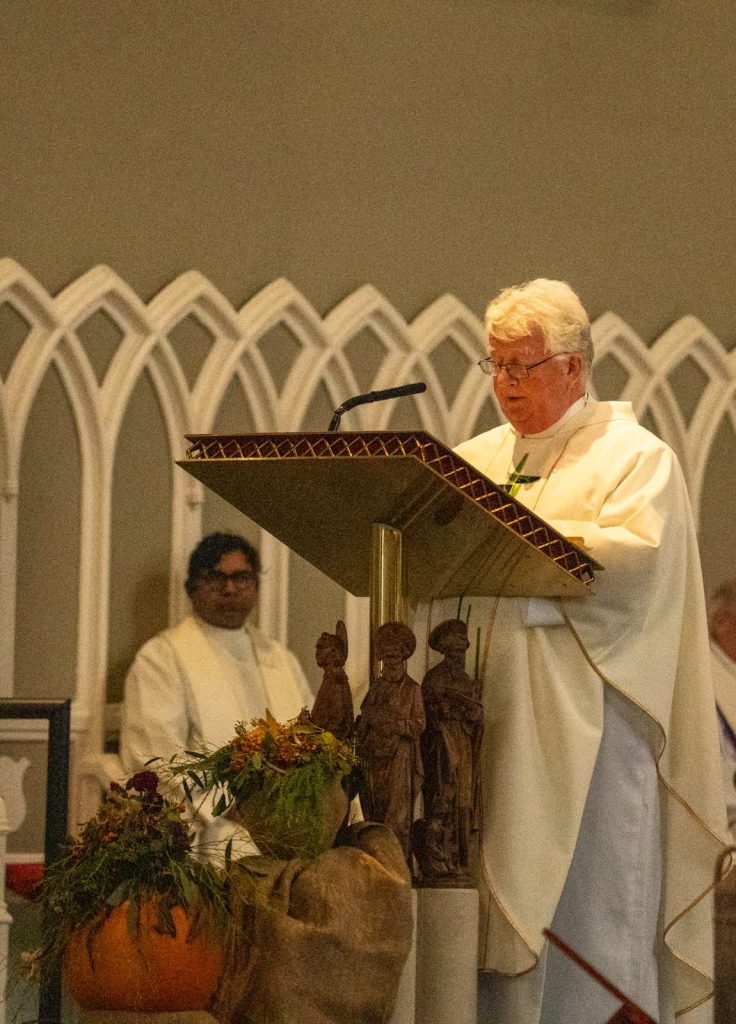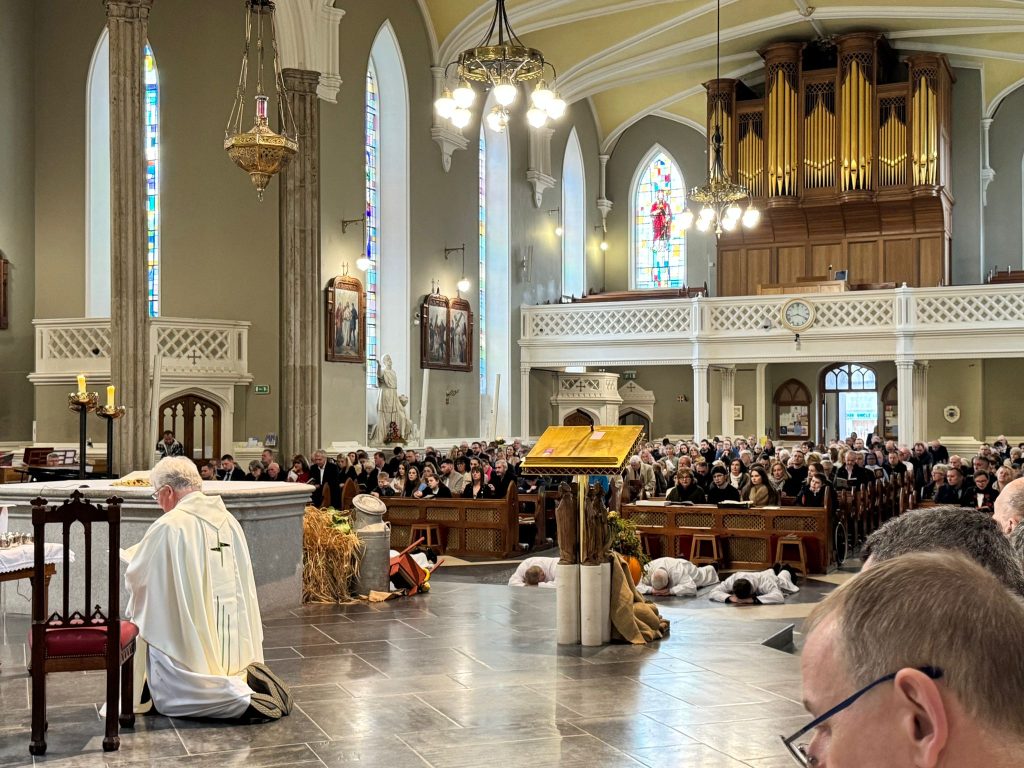Introduction:
On this the thirtieth Sunday in Ordinary Time we meet two in the temple at prayer, one a Pharisee whose prayer is to himself, the other a tax-collector, whose prayer is to God.
I welcome you warmly as we gather to ordain five men to the Permanent Diaconate; five men who have spent four years in formation. I thank those at diocesan level and national level who have accompanied them on their formation programme.
I welcome Jody Callan; Declan Prendergast; John Delaney; Sebastian Kopijka and Michal Mizgala.
I welcome your family and friends especially Jody’s wife Julia, sons Joe and Andrew and daughter-in-law Chloe; Declan’s wife Bernadette, their daughter Norah-Jane, sons Conor and Ned with Michael-John joining us from Melbourne through the webcam; John’s wife Fidelma, their daughters Laura, Shauna, Ciara and Alisha; Sebastian’s wife Malgorzata and their sons Maciej and Tymoteusz and Michal’s wife Justyna and their sons Franciszek and Antoni.
I am very conscious many guests have travelled a good distance to be here today, I am also very conscious of those who are not with us, but are here in spirit.
I welcome the concelebrating priests, and all the deacons who already serve in the diocese or elsewhere and are here this day.
Let’s return for a moment to that temple in Luke’s gospel, while we abhor the arrogance of the Pharisee, there is something of him in all of us and while we applaud the humility of the tax collector, we realise there is not enough of that humility in us and so we bless water that soon will be sprinkled …
Homily:
The Thirtieth Sunday in Ordinary Time confronts us with arrogance and humility as we meet a Pharisee and a Tax Collector. They epitomise the polar opposites in their relationship to God. The Pharisee is all about himself; the tax-collector is all about God.
The Pharisee, his very name suggests ‘The Separated One’. Pharisees were meticulous about Jewish law, custom and practice. The Pharisee in the parable not only kept the laws but added extra practices just to be sure. He speaks all the time about himself “I thank you God that I am not grasping, unjust”[1] … “I fast twice a week”[2] … “I pay tithes on all I get”[3]. He is praying the prayer to himself.
While the tax collector, standing a distance away, is praying to God. He doesn’t rely on his own merits, but relies solely on the mercy of God. No excuses are offered; he leaves himself completely in God’s hands, the powerful words “God, be merciful to me, a sinner”[4].
Luke’s gospel presents us with two ways of relating to God in the world. One centred on the self and the other immersed in humility. I love the line from our first reading, the Book of Ecclesiasticus “the humble man’s prayer pierces the clouds …”[5].
Ministry in Church isn’t always about what we do, what we have achieved, often not even about ourselves, we are all just passing through. The Pharisee is the caricature of a Church caught up in its own importance. Humility speaks volumes. In ministry we are so often caught in between the polar opposites. And those of us in ministry always rely on the mercy of God, and having experienced it, embodies it for those we serve.
So where does the Permanent Deacon find himself in a Church that is constantly evolving in its thinking and understanding? It was always envisaged that in restoring the Permanent Diaconate in Ireland, it would be more correctly understood and more enriching for the life of the Church, if it was seen as being in partnership with the great diversity of charisms and services that is the Church today. The latest gathering, a week ago yesterday, in Kilkenny of the Irish Synodal Pathway, heard a strong emphasis on baptism. Baptism is the most important sacrament, not ordination or indeed any of the other sacraments. The primacy of baptism in building up disciples for mission and helping people to encounter Christ.
Permanent Deacons are called to minister at the altar, minister with the Word and minister to the edges, the peripheries, the margins. All of you are married and I want to thank your wives for the dedication you bring to ministry and the support they give you. So many of our Permanent Deacons are also in full time employment, often its asked “how do they do it?”, a more important question to ask is “why do they do it?”. And my hope and prayer is that your calling to serve as a Permanent Deacon also helps to shape your mindset, your attitude, your position in your particular workplace.
Fifteen dioceses introduced the Permanent Diaconate, a further three are currently considering it. At this very time there are 142 Permanent Deacons ministering across this island. Kildare & Leighlin are blessed to have the services and support of eleven deacons, I take this opportunity on behalf of the priests and people where you minister to thank you. Today’s ordination ceremony will bring that number to sixteen and so I invite Jody, Declan, John, Sebastian and Michal to now stand …
[1] Lk.18:11
[2] Lk.18:12
[3] ibid
[4] Lk.18:13
[5] Si.35:17
